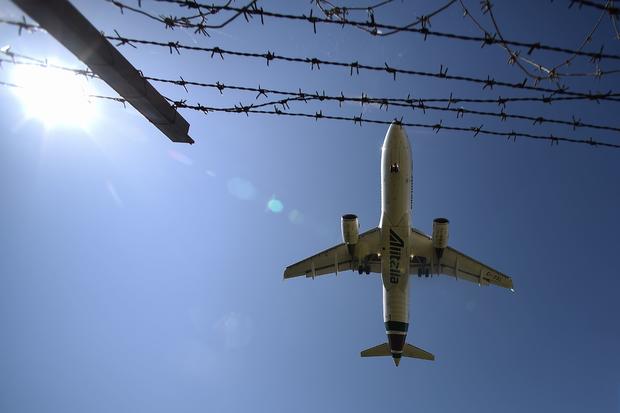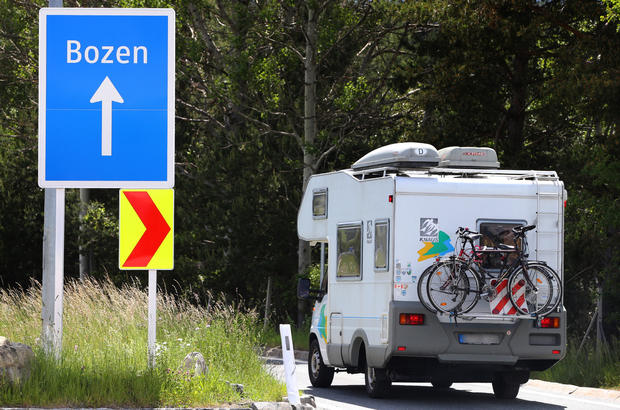With coronavirus crisis easing, Europe starts to return to open borders
Rome — Italy has reopened its borders to much of the rest of Europe nearly three months after the country became the first in the world to issue a strict nationwide lockdown as the coronavirus pandemic struck. COVID-19 has claimed more than 33,000 lives in the country, but Italy is now focusing on recovery.
"We've done it, thanks to the sacrifices everyone has made," said Regional Affairs Minister Francesco Boccia. "Now it's time to focus on protecting the economy and jobs."
Travel and tourism account for roughly 13% of the Italian economy. The Bank of Italy predicts GDP may shrink this year by the same percentage in the wake of the pandemic.
Italy is now allowing arrivals with no quarantine requirements from all of the 26 other countries in the European Union, plus the U.K., Iceland, Liechtenstein, Norway, Switzerland, Monaco, Andorra, San Marino and Vatican City.
For months, Italy suffered more coronavirus deaths and infections than any other country in the world, but those numbers have improved steadily for weeks. The number of deaths reported daily is now down in the double digits, compared to more than 900 in a single day at the peak of the outbreak.
Until this week Italians were limited to travel only within their home regions, but now they're free to move about the country again. There's still caution, however: The island of Sardinia is enforcing compulsory registration for everyone arriving, with a questionnaire that traces all possible internal travel.
And the nation knows COVID-19 has not been defeated. There were 55 new deaths on Tuesday, and 318 new cases, up from 178 on Monday.
"The battle is not yet won," said Health Minister Roberto Speranza. "The virus is circulating. But thanks to the things we have done in these weeks, thanks to the conduct of the Italians and the measures of the government and the regions, we have an assuredly better epidemiological picture."
It's still unclear when travelers from the United States — which has by far the deadliest known outbreak in the world — might be welcomed back to Italy.
"Great hopes and expectations"
In news that will be welcomed by tourist-dependent economies like Italy's and Spain's, Germany said Wednesday that it was also getting ready to ease its warnings against travel to and from other European countries.
German Foreign Minister Heiko Maas issued a worldwide travel warning for German tourists in March, but as of June 15 the warnings will be lifted for 31 European countries — as long as COVID-19 infection rates don't spike again.
"I know that this decision raises great hopes and expectations," Maas said, adding a warning that just as "travel warnings are not travel bans," which Germany never instituted, government advice should not be taken as an "invitation" to head abroad.
"We will provide the best available information on each country in our travel advisories," he said, noting that from June 15, the federal government's guidelines would be updated daily for individual counties, based on infection rates, rather than the blanket advice which has applied since March.
Maas noted, for instance, that travel to Great Britain would not be recommended as long as the U.K. leaves in place its current 14-day mandatory quarantine for all foreign arrivals.
He also repeated his warning that there will be no government funded mass-repatriations of German tourists stranded abroad, as there were in the early days of the pandemic.






